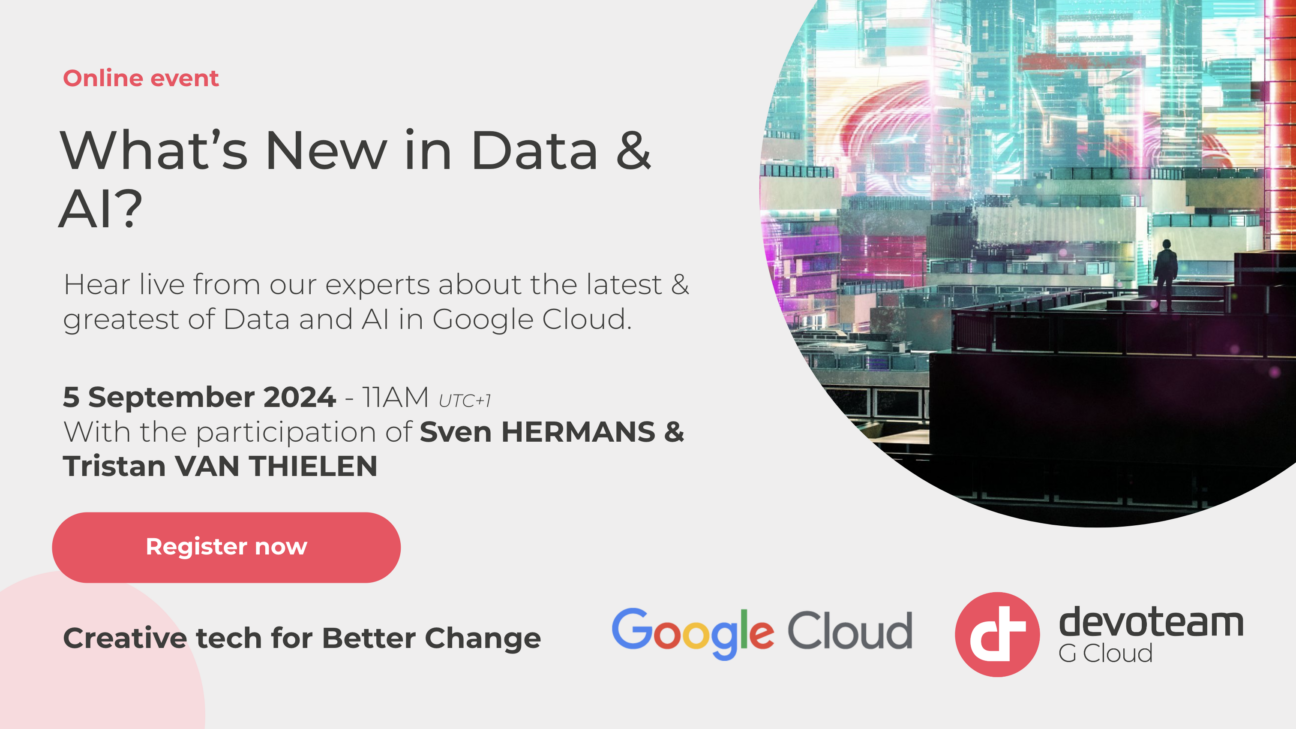Mastering data essentials is key for businesses to thrive. Data analytics is at the heart of making informed business decisions. Google Cloud Data Essentials is a suite of services designed to help businesses manage their data more effectively. It includes various tools for data storage, analytics, security, and migration. These tools help businesses gain deeper insights into their data, enabling them to make better decisions and drive growth.
In 2024, customers struggle with many individual data services stitched together to support end-to-end data analytics. BigQuery differentiates with a radically simple and unified data platform. Even better, it works across all types of data and workloads to meet the needs of the new AI era. BigQuery goes beyond just SQL.
It supports various engines, including Spark and Python. With the power of Gemini integrated into BigQuery, users can leverage leading LLMs on their enterprise data and take advantage of GenAI-powered assistance throughout the platform.
See how Google Cloud ensures BigQuery goes beyond data essentials, providing a comprehensive solution for modern data challenges.
Strengthened Data Analytics Features in BigQuery
Google Cloud continues to enhance BigQuery’s functionalities with lots of improvements. Here are 8 improvements that Devoteam’s data experts see as highlights:
- Advanced Metadata Cataloging: BigQuery enhances data discoverability and governance with Dataplex’s metadata graph. It automatically ingests and indexes metadata across analytics, lakes, databases, AI, and BI services. You can use it to empower self-service data access and lay a robust foundation for data governance. Cataloguing now includes Bigtable, Spanner, and Cloud SQL metadata, with upcoming support for Looker and Vertex AI models and datasets.
- BigQuery Workflows in BigQuery Studio allow users to schedule data processing tasks, like SQL scripts and Python notebooks, in your workflows. You can even build your workflows visually, without writing code.
- Continuous Real-Time Analytics: BigQuery introduces continuous queries, allowing unbounded analytical processing via SQL. This new feature processes data the moment it arrives, enabling real-time anomaly detection, prediction, and sentiment analysis. Integrated with Vertex AI, Bigtable, and Pub/Sub, it supports developing responsive, event-driven applications and reverse ETL capabilities.
- Serverless Composer for Data to AI Workflow Orchestration: The new serverless Composer simplifies complex pipeline orchestration, focusing on creation and execution rather than infrastructure management. It features a library of 400+ open-source connectors, enterprise-grade security, and a one-click network setup.
- Seamless Data Ingestion with Apache Kafka Integration: BigQuery now integrates seamlessly with Apache Kafka. It is the Apache Kafka you know, but then managed.
- Query acceleration improvements bring improved query performance with no changes to workloads. BigQuery intelligently analyses historical usage patterns to optimise performance automatically.. BigQuery takes care of the technical under-the-hood adjustments, allowing you to focus on extracting insights from your data. BigQuery ML integrations enable leveraging Google’s LLMs for speech-to-text, vision, translation, and Doc AI models, with unstructured data stored in GCS or BigQuery Storage. As a part of the data to AI journey, you will increasingly need to leverage all of your organisational assets, including unstructured data to make this happen. For example, you could use BigQuery ML to predict the likelihood of a rental house being rented not only based on the location and the number of bedrooms, but the photos of the house.
- Vector Embeddings and Search for LLMs: BigQuery now supports vector embeddings and search, enhancing LLM capabilities with use cases like retrieval augmented generation (RAG). This feature enables semantic and similarity search, improving recommendation engines and LLM accuracy. It for example enables experiences like product recommendation engines, which might search for similar products to the ones a user has previously interacted with.
Reimagine Your Data Essentials & AI Journey with Gemini in BigQuery
It’s clear, BigQuery is a powerful tool that takes data essentials to another level, offering powerful tools for advanced analytics. But what if you could unlock even more potential? By adding Gemini in BigQuery of course! It reimagines the entire data and AI experience. Now, you can get constant support throughout your data journey. For instance, use the chat interface for user-initiated assistance, or leverage background agents that learn your business and automate tasks proactively. Imagine agents that optimise performance and take action for you!
Data Essentials: Gemini in BigQuery empowers you to:
- Simplify complex tasks with AI-powered assistance.
- Gain insights faster with visual data discovery and semantic search.
- Optimise workloads and accelerate migrations.
Discover Gemini in BigQuery features in-depth:
- AI-Assisted Visual Data Prep: BigQuery data preparation will provide natural language-first visual data transformation capabilities that allow the creation of BigQuery datasets from multiple sources.
- Visual & AI-Driven Discovery: Explore, discover, and analyse data with BigQuery Data Canvas. This GenAI-powered experience offers an iterative, guided journey within BigQuery Studio. Discover data assets using natural language searches.
- GenAI Powered Semantic Search: Don’t just have access to data, make access to insights easier! We understand the struggle of staring at a data mountain unsure where to begin. Gemini leverages GenAI on Dataplex metadata to create a customised list of questions you can ask of your data. Simply click a question to see a response – Gemini in BigQuery auto-generates and runs SQL statements, giving you meaningful answers with a single click. This solves the cold-start problem and jumpstarts your analysis.
- Spend Less Time on Infrastructure: Leverage AI to receive recommendations on partitioning, clustering, and materialised views to optimise compute costs and performance. Additionally, serverless Spark autotunes for performance and resilience, with GenAI assisting in troubleshooting Spark failures
- Accelerate EDW Migrations: LLM-Enhanced Translations: Enhance the coverage and accuracy of industry-leading compiler translations with Large Language Models (LLMs).
It’s time to reimagine your data essentials and AI experience. Let Gemini in BigQuery be your guide.
Looker: Conversational Analytics and Enhanced Data Visualisation
Looker, Google Cloud’s data analytics platform, is also evolving:
- Conversational Analytics: Deeper Understanding Through Dialogue: Looker’s conversational analytics allows users to have interactive dialogues with their data using natural language. Imagine asking questions like “What are the top factors influencing customer churn?” in plain English and receiving clear and concise answers with visualisations. This empowers users to explore data independently and gain a deeper understanding.

A use case could be providing a small summary of the most interesting findings in weekly reports to C-level managers, allowing them to efficiently review the dashboard results without analysing all the numbers and graphs.
- Looker Studio Pro Integration: Unified Workspace Management: Looker Studio Pro integrates seamlessly with Looker, providing a combined feature set and unified workspace management. This eliminates the need to switch between different tools and streamlines the data visualisation and communication process.
Google Cloud Data Essentials: Conclusion
In short, Google Cloud’s AI advancements, especially the Gemini models, Gemini Assistant and Vertex AI platform, are transforming business operations. These tools streamline app development, simplify cloud management, and enhance security.
The data and AI world is moving rapidly. Want to stay updated on the latest advancements made by Google Cloud?

Join our ’What’s new in Data & AI with Google Cloud?’ online event on September 5th.